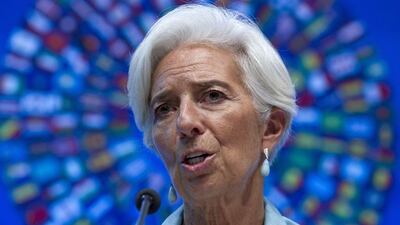Egypt’s central bank yesterday said it has reached a US$2 billion repurchase finance agreement using existing debt as collateral ahead of a meeting of the IMF today where the country could get approval for a $12bn loan from the international lending agency.
The central bank said it had borrowed the money through a consortium of international banks for a period of one year using its sovereign dollar denominated bonds that mature in December 2017, November 2024 and November 2028 as collateral.
“The transaction represents a strong vote of confidence from the financial markets in the ability of the Arab Republic of Egypt to implement its current reform agenda and steer the country along a path of strong and sustainable growth,” the bank said in a statement.
“This transaction complements a series of measures taken recently in order to unleash the vast potential of the Egyptian economy and instill instilnce by normalisnormalisingmarket conditions and bolstering economic activity whilst shoring up foreign currency reserves.”
Christine Lagarde, the IMF’s managing director, said earlier this week that she will recommend that its board approve the $12bn loan to Egypt after the North African country floated its currency and reduced subsidies for fuel. The Arab world’s most populous country has been in the grips of an economic crisis that has largely manifested itself in a shortage of much-needed hard currency that the import-dependent nation requires to feed its people and keep its factories ticking.
The central bank devalued the pound by almost a third to 13 pounds against the dollar from a previously fixed rate of 8.85 pound last week. The bank said the starting exchange rate would “serve as soft guidance to jump-start the market”. Before that move, the US dollar cost up to 18 pounds on the black market.
At the same time, the central bank also raised its key interest rates by 300 basis points and said that it would also stop trying to control what can be imported. The following day the government announced a reduction in fuel subsidies, bringing it closer to meeting demands made by the IMF for the loan.
The IMF has also asked Egypt to raise an additional $6bn in financing, mostly from allies in the Arabian Gulf, before it starts disbursing the loan.
“The liberalisation of the exchange rate and the adoption of the second phase of the fuel subsidy reforms are important measures in the authorities’ reform agenda,” Ms Lagarde said on Tuesday in a statement.
mkassem@thenational.ae
Follow The National's Business section on Twitter

